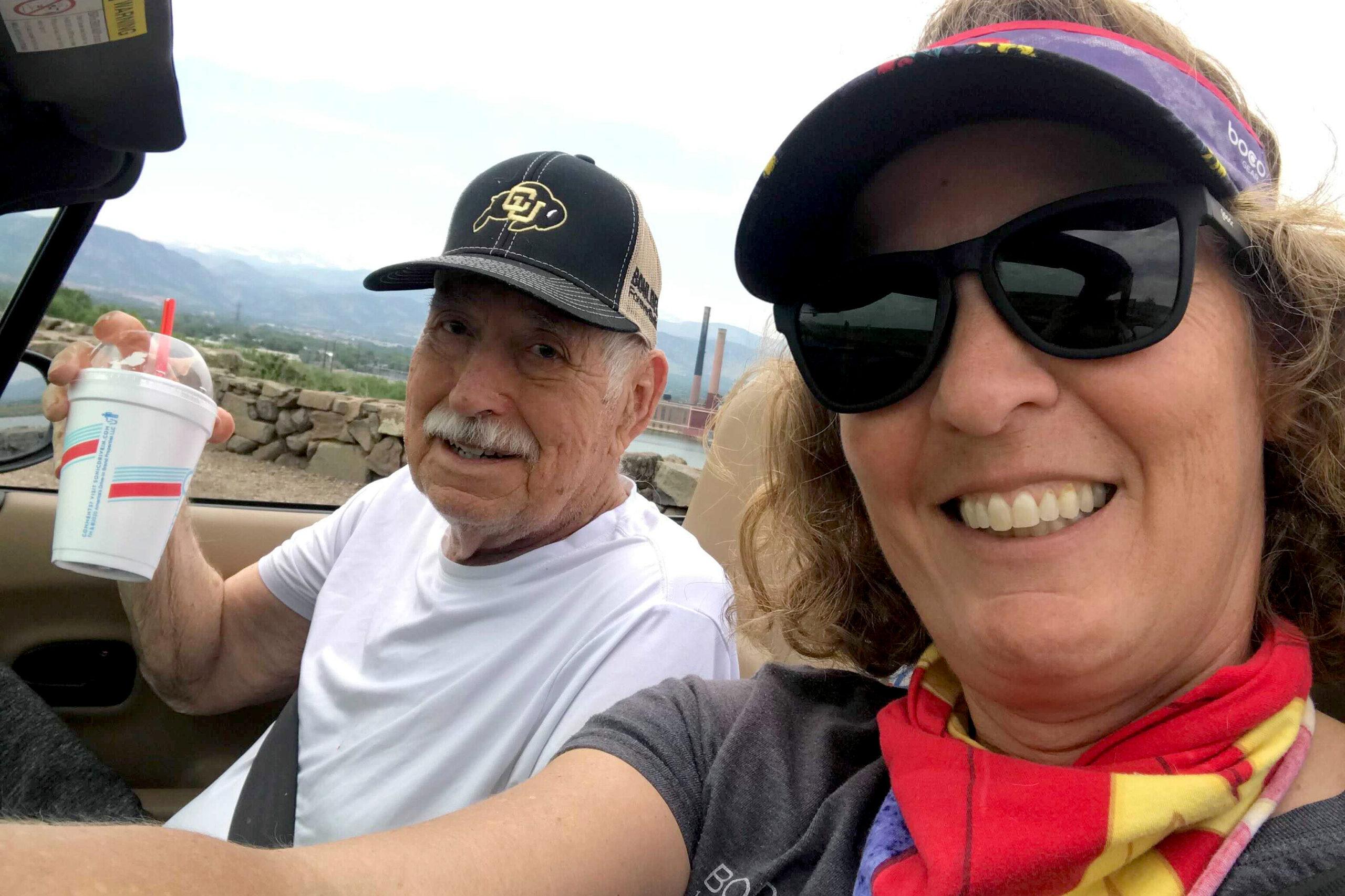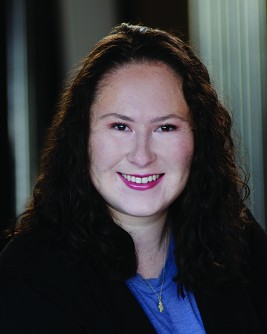
Jill Sellars has spent the last year second-guessing every decision she makes.
"I’m always worried," she said. "Should I work, or shouldn’t I? Should I have gone to the grocery store for the third time this week, or should I have consolidated it all into one? I'm constantly second-guessing myself, not about myself, but about the impact that it's going to have on others."
Sellars is a school bus driver for the Boulder Valley School District. On top of that, she also works what she calls an unpaid internship. She spends 30 to 40 hours every week coordinating care for her 88-year-old father, Charlie Ferguson.
Sellars describes her dad, Ferguson, as funny, personable, and easy-going.
He has always been fiercely independent, but three years ago, he was diagnosed with Alzheimer’s. Then, right before the COVID-19 pandemic hit Colorado in full force, the family found out he has advanced-stage prostate cancer.
Thinking of caregiving as a job helps Sellers compartmentalize, she said. It helps her stay clear-headed and make certain the finances, the shopping and the day-to-day treatments get done.
Nursing homes and long-term care facilities have been hotbeds for COVID-19 outbreaks and deaths
Statewide, there are currently more than 80 active outbreaks in nursing homes, assisted living and memory care facilities.
In all, the state has recorded 703 active or resolved outbreaks in those categories since the pandemic began, with a total of 2,399 deaths associated with them. Some of those facilities have both active and resolved outbreaks — meaning they are on the list more than once.
That has encouraged families like Ferguson’s to either work double duty to care for elderly relatives at home or move loved ones already in care facilities into their homes.
The number of residents in nursing homes in Colorado has dropped by ten percent during the pandemic, according to the Colorado Health Care Association, but it’s not clear how much of that is from people moving back home.
Sellars has friends who had family in care facilities during the pandemic. She says those friends described their parents as dying of broken hearts because they didn’t understand why their families could not be there for them. She said putting Ferguson into a home was never an option.
"When my father passes away, I expect to be there with him," Sellars said. "No matter what the reason of his death is, I want to be there, not be isolated from him. I just cannot imagine spending your last days alone."
Right now, Sellars feels lucky she has the job flexibility and financial means to provide care for her dad in his own home. Familiarity and consistency are crucial for patients with memory problems.
"Massive changes in their daily schedule can really take a toll and accelerate the disease process," she said. "I had seen what was happening in the nursing homes, in the memory care homes. And it basically would have been like, 'Okay Dad let's move you into a facility. Bye, have a nice life.'"
The cost of memory care makes things more complicated
Over the last year, Sellars amassed a team of half a dozen caretakers, including herself, who rotate in and out. Together, they are able to offer her father a full 8 hours of care per day. The crew costs about $4,500 a month — just under what it would cost for Ferguson to live in a memory care facility.
For the rest of the day, Ferguson is alone in his house. So, Sellars bought wifi-connected cameras for every door. She checks them constantly to make sure her dad hasn’t fallen or wandered off.
She removed her dad’s glass coffee table and area rugs. She even bought pool noodles, cut them in half and put them around sharp furniture edges — all to reduce the chances of Ferguson will accidentally hurt himself.
"I'm worried that he's alone, but I can't negate a hundred percent of the risks," Sellars said. "I'm not trying to keep him alive forever. I am trying to help him finish out his days in a way that is dignified and caring and considers him as a human being."
Rules around social distancing and masks really feel like life-or-death, she said.
"I stressed the entire summer about whether I should go back to work or not," Sellars said. "I drove my husband crazy. It’s a constant state of worry."
Ultimately, she decided she would work in the fall, both for financial reasons and to maintain her own mental health.
Many of Colorado's caregiving services are on hold due to COVID
Colorado has 14 federally-funded Area Agencies on Aging. The organizations offer support for people over 60 and their caregivers, but most of their offerings are on hold to limit the spread of COVID-19.
"Caregiving is already incredibly difficult, and the isolation and the lack of resources I think is making caregiving even harder right now," said Erin Fisher, director of the Area Agency on Aging for five counties in the central and northern mountains.
The AAAs offer services like in-home care, exercise classes, help with chores and counseling.
"Before COVID, we helped people clean their houses," said Jayla Sanchez-Warren, who runs the Denver metro agency. "We're going to go into people's houses that haven't been cleaned because they're not able to clean their house in 10, 11, maybe 12 months."
But the switch to virtual programming does have its advantages. The Denver area hoarding support group has quadrupled in size since it moved online, according to Sanchez-Warren.
Sellars is hoping the vaccine will allow her to stop constantly worrying about infecting her dad or his caregivers and to arrange for more family visits with Ferguson’s son and grandchildren.
Ferguson got the first of two Pfizer vaccine shots on Inauguration Day, and will receive his second shot next week.
"I cried that day," Sellars said of their first trip. "It was when Garth Brooks started singing amazing grace. My dad started singing amazing grace. I started bawling because I'm like, this is hope."
The state’s agencies on aging are coordinating transportation for people unable to get themselves to vaccination appointments. The Denver agency has already driven hundreds of people to get their shots.
Still, Sellars is worried people will try to return to pre-pandemic normalcy too quickly.
"I don't want elderly people like him to be written off again," she said. "If you only had a few more months left, would you want to just stay home because someone else didn't want to be bothered?"
Ferguson himself is most excited to visit his favorite breakfast spot and to resume traditional father-daughter dates at Sonic Drive-In once the pandemic ends.









